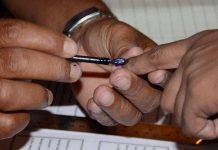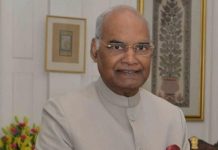As the country gears up for 2024 general election, Tehelka SIT uncovers the shadowy industry involved in sourcing crowds at political rallies for a price.
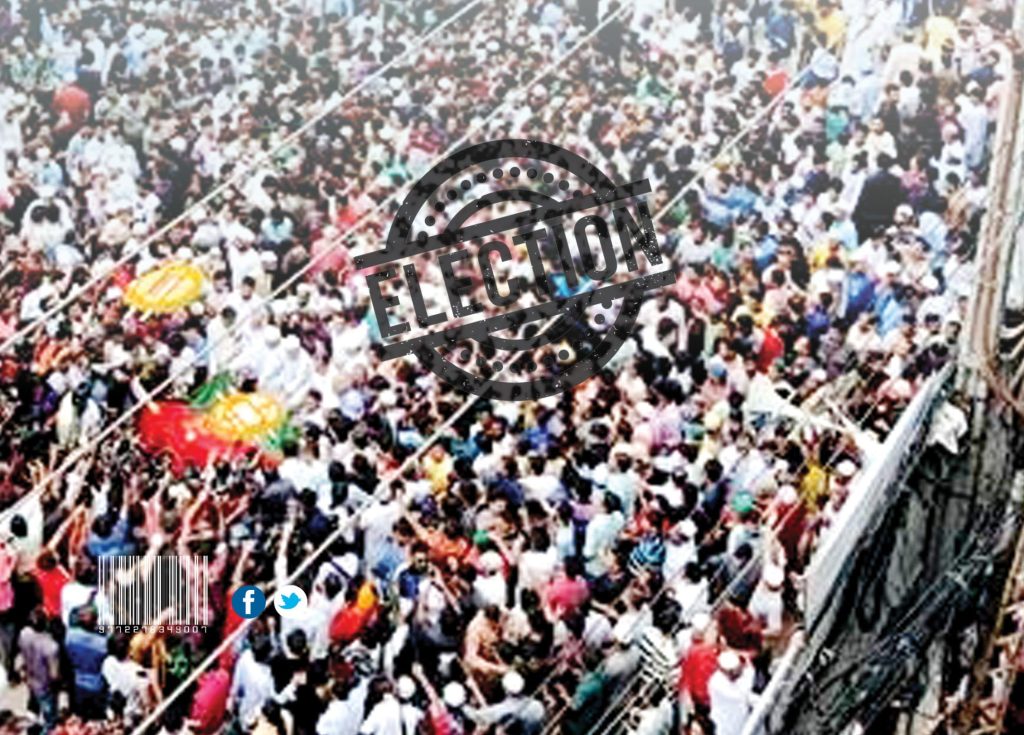
Crowd sourcing is fast turning into an industry in the realm of politics. Globally, there are companies which have established themselves in the business of mobilizing crowds for political and socio-economic causes. In the United States, companies like Crowds on Demand and Crowd for Rent, alongside the UK’s Envisage Promotion, thrive on orchestrating the assembly of crowds. But this phenomenon is not limited to these two countries, as evidenced by a Kenyan author’s book, “Crowd for Hire: How Kenyan politicians source crowds for events.” Indeed, crowd hiring has become ubiquitous, and no matter what clime you go to, professional crowd contractors can be seen plying their business profitably. The phenomenon of crowd hiring knows no bounds; professional crowd contractors thrive globally, serving a diverse clientele.
Politicians across the world love to gauge their popularity by the sheer magnitude of the crowds they can attract. But is this truly an accurate measure when many in attendance have been enticed with promises of food, alcohol, or cash? Numbers, particularly crowd size, hold significant sway in world politics, and India is no stranger to this phenomenon. From the United States and the United Kingdom to South Africa, Kenya and Nigeria, crowds serve a similar purpose: projecting strength, influencing public opinion, creating a perception of widespread support, and generating media buzz and optics.
With the 2024 general election around the corner, the stakes are high, and the tactics employed by political entities to gather crowds take center stage. It’s not uncommon to observe familiar faces at separate rallies hosted by different political parties. The advent of social media has exacerbated this trend, enabling the manipulation of crowd images through techniques like photo-shopping and the creation of fake videos to exaggerate their size.
In light of these developments, Tehelka has undertaken a long-awaited investigation into the sourcing of crowds, a practice rapidly evolving into a global industry. For years, whispers of “rented crowds” have lingered, but concrete proof remained elusive. This investigation by us marks the first time that media has captured contractors on camera who provide crowds for hire to any political party willing to pay.
Now, allow us to introduce Junaid Ahmed, a crowd contractor based in Delhi. Junaid’s first-hand account sheds light on the harsh realities of the ‘industry’. “I was promised Rs 2500 for the bus expenses for transporting the crowd a political rally site in Delhi besides lunch for them by the organizers,” Junaid recalled. “I arranged for more than 100 people, but after the rally, they gave me only Rs 1500 instead of the agreed upon amount of Rs 2500. So it was Rs 1000 short of what they had promised.” Junaid further elaborated on the organizers’ failure to fulfill other commitments, stating, “And instead of lunch as promised, the people I had arranged only received bread pakoras.” This left him covering the shortfall from his own pocket. “I ended up paying Rs 1000 from my own pocket for transporting the people in the bus that I had arranged,” Junaid disclosed. “Next time,” he declared, “I will ensure that the crowd I arrange for any political party rallies receives the full amount promised to attend the rally.”
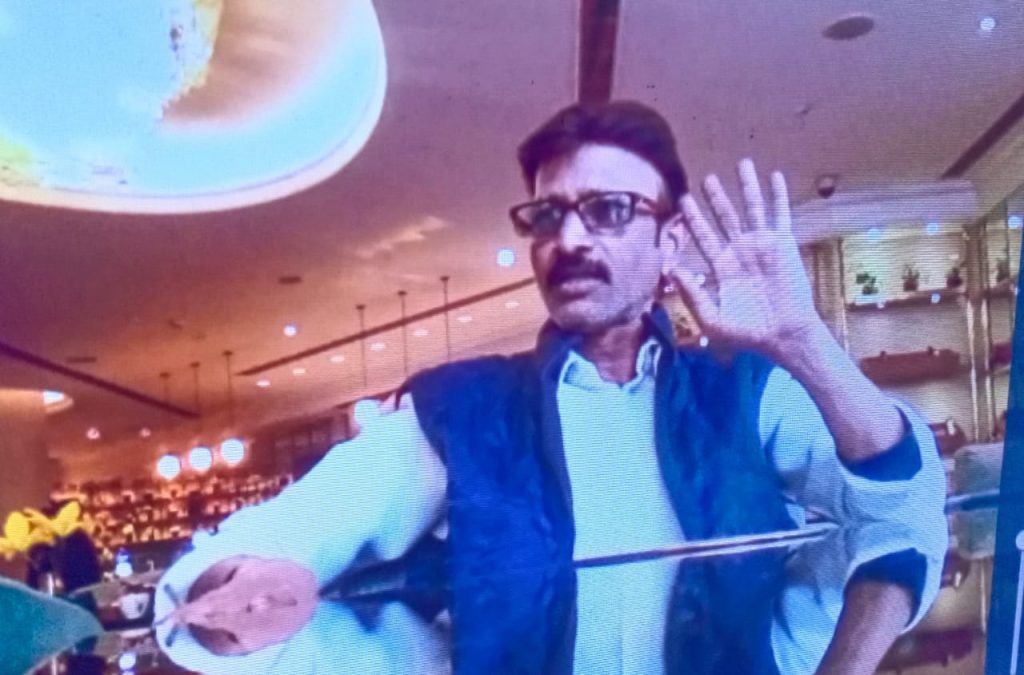
It may be mentioned that in November 2022, Karnataka witnessed a Junaid-like uproar when crowd at political rally protested, claiming they had been similarly shortchanged. According to their allegations, the local MLA had offered them Rs 500 each, but they only received Rs 200. Their task? To attend a political rally. More recently, the BJP released a video accusing Congress leader and former Karnataka Chief Minister Siddaramaiah of instructing party leaders to bring people to their rally after paying them Rs 500 each. The video, which went viral on social media, purportedly shows Siddaramaiah traveling in a bus with Congress state leaders and making these remarks. However, D K Shivkumar, the Karnataka Pradesh Congress Committee (KPCC) chief, swiftly dismissed the allegations. He claimed that the video was fake and insisted that the party did not engage in the practice of paying people to participate in their rallies.
Meanwhile during the investigation, Tehelka first met with Murad Ahmed, a crowd contractor and activist. Murad, who works with a prominent NGO in Delhi overseeing multiple shelter homes, disclosed the number of people he could mobilize for our hypothetical political rallies during the upcoming 2024 general election. Initially, Murad explained, he could arrange 50 individuals for our out-of-town rally, all of whom would come from the shelter homes under his purview. For rallies within Delhi, he offered to organize 100 people. These figures, he assured, were just the starting point; as our confidence in him grows, he expressed his willingness to increase the numbers
Reporter- Aap kitno ki guarantee le rahe ho ye bata do mujhe.?
Murad- Dekhiye Delhi se bahar k to ye log bhi thoda sa,..Delhi k bahar to achey hi log bhejenge jab itna paisa de rahe hain, jab Rs 5000 de rahe hain per bande k hisab se.
Reporter- Ismein auratein bhi dekh lijiyega..?
Murad- Accha ismein aapne auratein…acha aapne choot de di hai jitney marzi le aao.
Reporter- Humein auratein bhi chaiye, bacche bhi, nabalik bachey bhi chahiye.. dikhaney k liye dekho nabalik ki bheed bhi aa rahi hai… kitni chahat hai netaji ki..
Murad- Kum se start karengey..ek aadh pehle trip mein chale jayenge na phir wo aan kar batayenge…..jo dikhta hai wo hi bikta hai, hum 1000 admi se keh de aur wo nahi jaaye…50 jayenge wo laut kar 50 ko batayengey,…isliye 50 log se hi shuru karengey jo acche hain…50 log aap bhi dekh lenge ki inke log kaisey hain.
Reporter- Sare NGO k log honge aapki..
Murad- Nahi nahi…sare hamare log hongey, hum NGO se nahi letey….Raien Basera k log hongey.. usmein se kuch aisey bhi hain 10th padh rahe hain, kuch graduation kar chuke hain,…kuch hum mein se bhi hongey.
Reporter- Accha sab hongey.. nabalik bachey bhi honge.. matlab aap 50 ki guarantee de rahe ho..?
Murad- Haan 50 ki, usmein mera bhi test ho jayega, aapka bhi test ho jayega.
Reporter- Aur agar local Delhi mein ho to.?
Murad- Local to 100 ho jayenge, 100 mainey abhi aap..jab waqt aayega to us samay ho sakta hai mein aapko 200 bhi kar doon..
[Our meeting with Murad Ahmed unveils his capacity to mobilize crowds for political rallies. His commitment to increase the number of attendees as trust develops underscores his confidence in meeting our needs for the upcoming elections.]
Murad now proposed a remuneration of Rs 25,000 for both himself and his partner to orchestrate the assembly of the crowd for the political rallies. Furthermore, he stressed the importance of maintaining strict confidentiality regarding this arrangement.
Reporter- Aur janey se 2 din pehle advance paise mein de dunga, mein nahi matlab wo de denge..kisko dene hai ye..aap bata dena.
Murad -Haan haan..mujhe de deina ya inhein de de..kisi ko bhi…koi dikkat nahi hai..
Reporter- Humko khamoshi se dena hai..?
Murad- Bilkul, ye hi mein aapse kehne wala tha..ye baat jo bhi hai bas yahin khatam ho…phone pe aap Wajahat se baat kar lena…koi show nahi, na aap saamne aayenge, na hum….aise kaam karengey kisi ko pata na chaley.
Murad- 25-25 k (hazaar) hum dono ko de dena..
Reporter- Kitna, 25-25 hazar aapko aur Wajahat ko…theek hai.. Mein baat kar lunga..
Murad- Aap baat kar lena jaisa bhi ho bata dena.
[Murad demanded Rs 25k each for himself and for his partner for arranging crowd even as he emphasized on maintaining a veil of confidentiality on the whole issue.]
Now, Murad disclosed that he had 10 years of experience in arranging crowds for various events. He boasted how he had organized crowds for numerous rallies in Delhi. Regarding the charges for crowd sourcing, Murad mentioned that there were no fixed rates. Depending on the client, it generally ranged between Rs 500 to Rs 1000 per person, along with allowances for food, etc, he informed. He said that the crowd would also raise slogans in favour of the party which would hire them!
Reporter- Pehle to mujhe ye batao aapko experience hai is kaam ka.?
Murad- dekhiye aapney jo kaam bataya hum us kaam se 10 saal se jude hain….ismein experience kya.. public hi to ikattha karni hai…experience matlab wo aadmi chahiye jiske aadmi end time par mana na kare.
Reporter- Aur wo bhi jise pehle se experience ho.
Murad- Haan ye kaam to main aapko bata hi diya main pehle kar chukka hoon, haan Delhi se bahar ka nahi kiya…Delhi se bahar na kisi ko bheja hai na koi gaya hai.
Reporter- Rally mein bheja hai bheed mein..?
Murad- Rally mein to bheja hai yahan.. Ramleela ground mein..aur jagah mein, juloos mein bhi.
Reporter- Kitney log bhej diye hongey aapne rally mein ?
Murad- Rally mein to bahut ho jatey hain, jaisey maan lijiye 100 hamarey pass hain 100 unke apney jaanney wale ho jatey hain.
Reporter- Unka kitna charge kartey hain rally mein jane ka..?
Murad- Wo party karti hai,…1000- 500 rupee per banda ..aur khana peena…alag alag hota hai.
Reporter- Accha naare unko wahi laganey hai, jo party paisa de rahi hai unke favour ke.?
Murad- Dekhiye wo to jhadu hoga to jhadu k lagege, haath hoga to haath k lagege aur phool hoga to uske,..wo to aap jo likh kar de dogey wo bol denge
Reporter- Jo paise de raha hai usi k haq mein..
Murad- Haan ..
[Murad’s extensive experience in crowd organization and flexible pricing structure highlight the complexity of crowd sourcing for events.]
Now, Murad issued a solemn warning, stressing the critical need for secrecy regarding his involvement in supplying crowds from the NGO’s shelter homes to rallies. He emphasized the potential consequences, including the risk of losing his job and the NGO facing bans or other repercussions.
Reporter- Accha ismein darr hota hoga NGO k malik ko pata na lag jaye,…unki knowledge mein nahi hota hoga ye.?
Murad- Haan ji..ye to hamarey haath mein hota hai, nahi to hamari NGO badnaam ho jayegi, aap aisa kaam kyun kar rahe ho?
Reporter- Aapki naukri chali jayegi?
Murad- Naukri chali jayegi…unki NGO ban ho sakti hai.?
[Murad explains to us the importance of being discreet in this business as he cautioned us against putting the word out on the deal.]
Murad not only agreed to provide a fake crowd for our political rallies, but also assured that the crowd would even raise provocative slogans if required. In fact, he didn’t stop there as he also mentioned that a few members from his crowd would be willing to hurl shoes and throw ink if required, although the charge for this task would be doubled. He explained that there are people at his shelter homes who are willing to engage in such negative actions if asked and paid.
Reporter- Accha ek to kaam ho gaya ye , aur ek maan lo koi khilaf ke naare lagwaney hain,..
Murad- Khilaf ka matlab…wo to paise ka hi khel hai ho jayega..
Reporter- Aapke hi khilaf maan lo nare lagwaney hain.
Murad- Paise double ho jayenge, wahan par to matlab lathi charge bhi ho sakta hai,..police bhi hoti hai, wo rookti hai.
Reporter- Joota phek de, siyahi phek de.
Murad- Haan par dande khane wali public bhi honi chahiye..
Reporter- Aisi public hai.?
Murad- Aisi public ho jayegi,..jo hamarey shelters mein hain, wo hi kar saktey hain,…joota maarna, gali dena aise kaam wo hi kar saktey hain… ho to jayenge, magar kam honge,…jaise 50 log hain unmein se 30 to sirf khade rahengey haan haan karney wale, 10 wo honge aage jakar bolne wale..murdabad ke naare laganey wale.
Reporter- Koi siyahi phek de, joota maar de ?
Murad- Dhoonde ge, wo bhi ho hi jayega,…par itni quantity mein nahi honge…kyunki har koi safe game khelta hai..
Reporter- Arey ismein koi zyada log thodi hi chahiye…joota, siyahi, mein to 1-2 log ka hi kaam hota hai, wo hi hit ho jata hai bas.
[Murad’s willingness to employ disruptive tactics, including provocative slogans and physical aggression, underscores the unethical depths of crowd manipulation in political rallies.]
We now encountered Shashank Chawla, a Delhi-based crowd contractor and theatre artist known for his nukkad nataks (street plays). We informed Shashank of our requirement for crowd support for upcoming political rallies in the 2024 general election. He indicated that he could offer 100-120 people for rallies in Delhi.
Reporter- Agar local chahiye ho Delhi mein..?
Shashank- Delhi mein to mil jayega…koi dikkat nahi.
Reporter- Delhi mein kitna kara denge aap ?
Shashank- Sir dekhiye meri jo capacity hai.. wo 100-120 ke aas pass hai.
Reporter- Theek hai..
Shashank- Mein jhoot nahi bolunga ki 500-1000..itna na aa paye to phir, bekaar baat hai.. Delhi mein kab chahiye honge aapko..?
Reporter- Delhi mein main date bata dunga aapko..
Shashank- Aap kam se kam 15 din pehle bata dena..
Reporter- Haan mein aapko bata dunga..
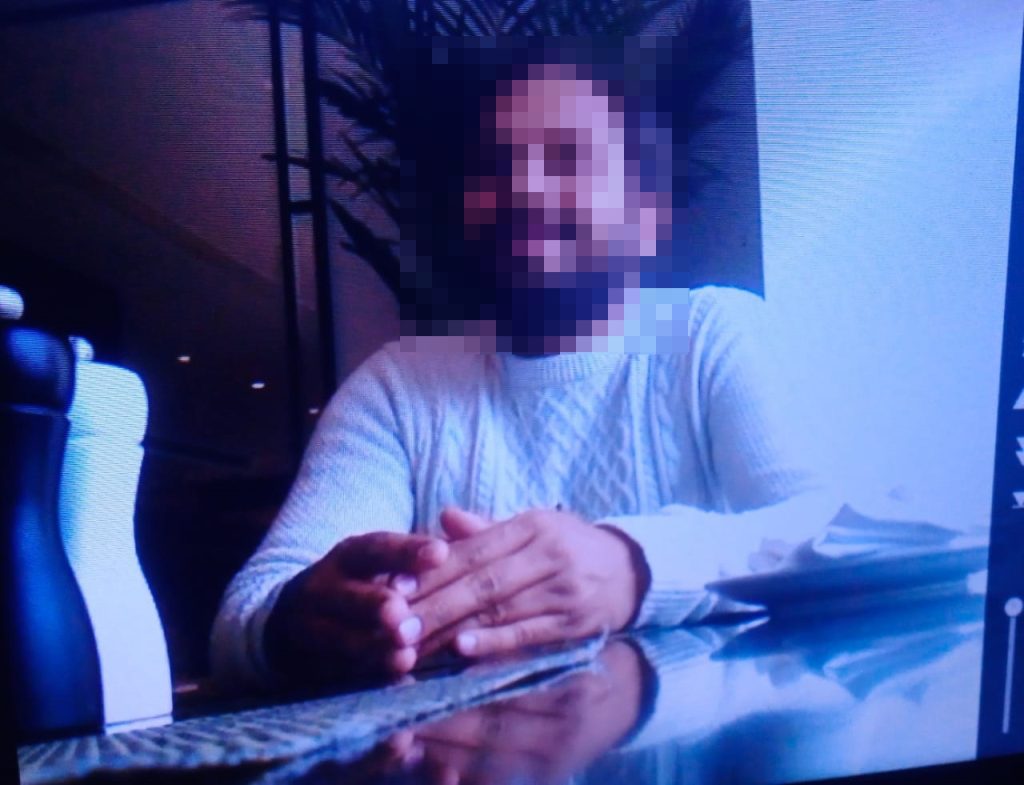
[Our encounter with Shashank Chawla reveals his dual role as a crowd contractor and theatre artist, offering insight into the multifaceted nature of his profession. His assurance of providing a sizable crowd for political rallies demonstrates his capacity to meet specific event needs.]
When asked about the composition of the crowd he would provide, Shashank mentioned that children in the age group of 14-15 would also be included. However he hastened to add that they would appear older than their years and would not arouse any suspicion
Reporter– To is mein crowd mein bacchey, auratein, aadmi sab honge.?.
Shashank- Aadmi honge, auratein hongi, bacchon ka mein abhi mana hi karunga sir, mere liye bhi..thoda..haan to rahengey adult hi, 14- 15 saal itna chal sakta hai,..young boys and girls
Reporter- 14-15 saal to minor hi hue?
Shashank- Matlab aajkal to sab mature hi lagtey hain,..matlab aap 14 year k bachey ko dekh lenge to keh nahi saktey 14 ka hain…19-20 k to lagtey hi hain…aisey hi matlab jinka look mature ho, mein arrange karwa donga.
Reporter- Theek hai, 14-15 saal k karwa dijiyega..
Shashank- Theek, koi verification karney to baitha nahi hai.
[Shashank’s assurance that the assembled crowd would withstand scrutiny, even with underage participants who could pass for older, highlights the meticulous planning involved in crowd procurement.]
When asked about the demographics of the crowd he would provide for the rally, Shashank explained they would be individuals from poor and unemployed backgrounds. He emphasized this was to maintain an air of authenticity even as he disclosed that unemployed individuals often approached him seeking such opportunities as a means of earning a living.
Shashank- Maximum to maximum mainey abhi tak 80-85 crowd bhej rakha hai.
Reporter- 80-85?
Shashank- Haan, uskey baad kya hota hai..log judtey hain na ek doosre se, phir…bhai hame bhi karwa do, kai log ne mujhe bola bhai hamarey dost hain, unhe bhi jodiye, to judh saktey hain.
Reporter- Jodh lijiye matlab kis cheez mein..?
Shashank- Crowd ke ander hi, jinko kaam ki zaroorat hoti hai na, kuch hotey hain jo khali bethey rehtey hain, kaam ki zaroorat hoti hai, unhoney mujhe kaha ki hamey bhi jana tha, mainey kaha next time hoga to dekhenge,
Reporter- Unko paisa mil jayega 2000 rupees aur kuch nahi ..to kis type ka crowd hoga?
Shashank- Ab rally k liye aap mang rahe hain to rally k liye to gareeb, mangney wale hotey hain,..
Reporter- Haan ..haan.
Shashank- Rally k liye to yahi chalega….dikhana to padta hi hai, if I am not wrong.
[Shashank’s revelation brings into focus the socio-economic dynamics at play in the crowd-procuring industry. His emphasis on authenticity highlights the desperate circumstances that lead many unemployed individuals to engage in such activities for livelihood.]
When asked about the cost of procuring the crowd, Shashank initially diverted the conversation, mentioning his experience in arranging crowds for film shoots. However, he later quoted a price of Rs. 2,000 per person for providing crowd support at our rally, which we accepted.
Reporter- Inke charges kya honge Delhi ke..
Shashank- Aap bataiye sir…aapka kya hai.?.
Reporter- Agar aap thoda bataye to mujhe zyada comfortable hoga…..aapka kaam hai ye..
Shashank- Hmm, mera kaam to hai sir… mein zyada tar crowd shoots wagerah k liye provide karwata hoon.
Reporter- Ek bhi rally k liye nahi karwaya aapne.?
Shashank- Rally wagerah k liye, mainey aapko bataya than na, shoots wagerah k liye hum karwatey hain, matlab 2000 per head maan kar chaltey hain kyunki usmein aana jaana bhi rehta hai.
Reporter- 2000 per head theek hai.
[Shashank’s initial hesitancy followed by the agreement on a price reflects the intricate negotiation involved in crowd procurement for political rallies.]
Shashank then disclosed the commission he would deduct from the total amount we were to pay. He stated that his commission would be 30 percent of the total payment.
Reporter- Aapka kitna charge hoga.?
Shashank- Sir ismein hum, jo deduct kartey hain wo 30% deduct kartey hain..
Reporter- 30% matlab?
Shashank- 30% aap laga lijiye..
Reporter- Aap 100 log bol rahe hain na,100×2000
Shashank- 100×2000….Ek ka 2000…haan.
Reporter- Ek ka 2000 na, kitna ho gaya, 2 lakh
Shashank-Hmm.
Reporter- Uska 30% aapka matlab, 30,000.?
Shashank- Nahi.. 30 nahi Rs 60,000.
[Shashank’s disclosure of a 30% commission from the total payment underscores the financial dynamics involved in crowd procurement arrangements.]
We now met the third character in this story, Junaid Ahmed, a Delhi-based crowd contractor who also provides crowd for political rallies. Junaid recounted how he was cheated in 2018. An organizer of a political rally had approached him to provide a crowd for the event. He said he arranged the crowd as requested and was promised Rs 2500 for the bus to transport people to the rally site. However, after the rally, he was only paid Rs 1500, leaving him short by 1,000 rupees, which he claimed to have paid out of his own pocket. He lamented that the crowd, who had been promised proper lunch, were served with bread pakoras instead. With a firm resolve to protect the interests of his workers, Junaid vowed to fight for fair treatment in future.
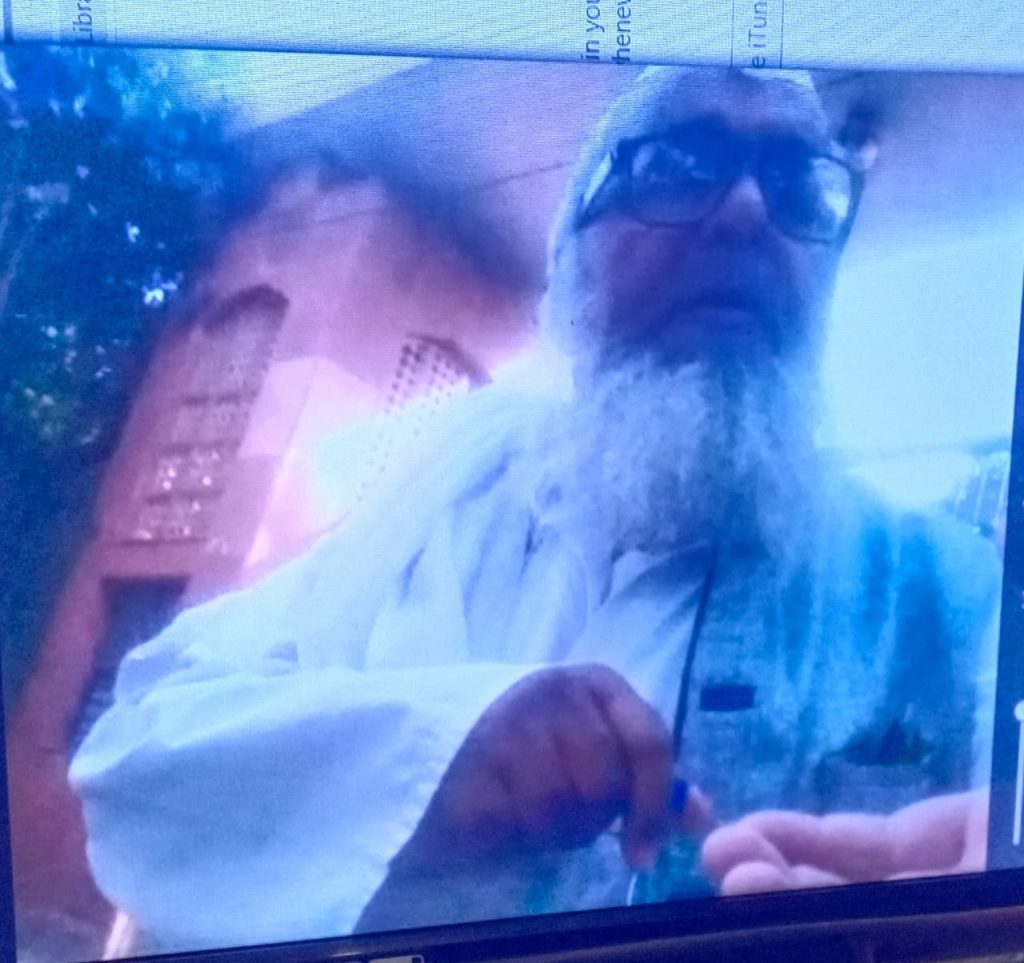
Reporter- Aapne kitney log bheje they XXXXX ki rally mein..?
Junaid-100 se upar they..
Reporter- 100 se uper log bheje they aapne, sab aapke madarse k they ya kahan ke..?
Junaid- Wahin aas pass ke..
Reporter- Aapke elakey ke they.?… Ye madam XXX ki thi.?
Junaid- Lagta hai wohi … Madam se to hamari mulaqat hi nahi hui, unke bete se hui thi…1500 rupiya bus ka bhada de diya, 1000 humko jeb se dena pada, 2500 mein teh hua tha.
Reporter- Accha-acha, jo bheed ko le jana teh hua tha wo 2500 rupiya mein hua tha.
Junaid- 2500 mein bus teh hua tha…
Reporter- Jana unhein local delhi mein hi tha..public ko inhoney paise nahi diye ?
Junaid- Bread pakora khila kar bhej diye…khana tak nahi diye..
[Junaid Ahmed’s bitter experience underscores the exploitation faced by crowd procurement managers for rallies. He recounts how he was short-changed by rally organizers a few years ago.]
The Tehelka exposé has laid bare the connection between readily available young people for political rallies and the stark realities of unemployment, hunger, and profound poverty afflicting our nation. While the practice of renting crowds may be an old political tactic, India’s unemployment crisis, especially among its youth, provides fertile ground for such mobilization, regardless of its ethical implications. Many underemployed individuals, including idle youths, stand ready to be hired; their energies directed towards political causes that often do not reflect their own interests or beliefs.
The report sheds light on another key factor behind these large crowds: the pervasive poverty in India. This is where the dubious utility of crowd contractors, as exposed by us, becomes apparent. Many Indians who should be engaged in productive activities are instead lured by wages between Rs 500-1000-2500, often accompanied by a food packet and even liquor, to attend campaign rallies.
So, our special investigative report has exposed the complex interplay between poverty, unemployment, and political mobilization in India. By shedding light on the practices of crowd contractors, we aim to foster greater awareness and scrutiny of these ethically dubious tactics in the political arena.








